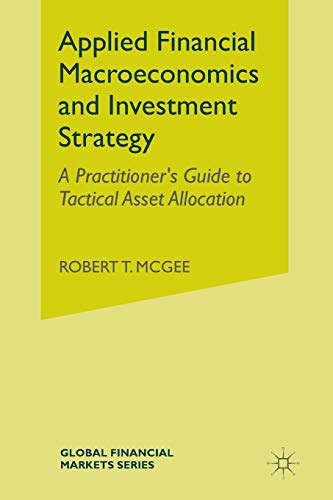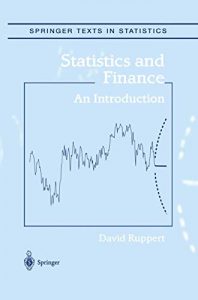Top 10 Must-Read Books on Financial Strategies and Asset Management
In the world of finance and investment, understanding asset management and strategic allocation is crucial. Whether you are a seasoned investor, a finance professional, or simply keen to enhance your knowledge, these ten books will provide invaluable insights into various financial strategies. Here’s why each one deserves a spot on your reading list.
1. Applied Financial Macroeconomics and Investment Strategy by Robert T. McGee
This book serves as a comprehensive guide to tactical asset allocation within the realm of applied financial macroeconomics. McGee dives deep into the market dynamics, providing readers with actionable strategies that are both practical and insightful. The author’s expertise shines through as he combines theoretical knowledge with real-world application. If you’re looking to enhance your investment strategies, this book is a must-read.

2. Risk Management and Shareholders’ Value in Banking by Andrea Sironi and Andrea Resti
Understanding the intricacies of risk management and its influence on shareholder value is crucial in banking. This book not only explores different risk measurement models but also discusses the importance of capital allocation policies. Sironi and Resti provide a thorough analysis, making this book essential for finance professionals in the banking sector. Its well-structured approach allows readers to grasp complex concepts with ease.

3. Managing Bank Capital: Capital Allocation and Performance Measurement, 2nd Edition by Chris Matten
This updated edition provides a detailed examination of capital management in banks. Matten highlights the importance of capital allocation and performance measurement in ensuring a bank’s stability and profitability. This book is particularly useful for professionals in banking and finance who need to adapt to regulatory requirements while maximizing value. Its rich insights and practical approach make it a recommended read.

4. Private Equity Deals by Ted Seides
Ted Seides offers a unique perspective on the world of private equity through the lens of real-world deals and operations. This book is filled with lessons from private equity professionals and is a goldmine for anyone interested in understanding the nuances of private equity investing. If you want to develop skills in deal-making or operations, this practical guide will help you navigate the complexities of private equity.

5. Asset Allocation im Private Banking by Marc Engelbrecht
This book delves into asset allocation strategies specifically tailored for high-net-worth individuals in private banking. Engelbrecht provides readers with insights into creating optimal portfolios that align with clients’ investment goals while managing risks. His expertise in the field makes this book a critical resource for private bankers and wealth managers looking to enhance their asset allocation strategies.

6. Asset Management at Central Banks and Monetary Authorities by Jacob Bjorheim
This enlightening book discusses innovative practices in managing international foreign exchange reserves. Bjorheim emphasizes the significance of asset management for central banks, covering various strategies and policies employed globally. The insights provided are not only relevant for financial authorities but also for every investor keen on understanding global monetary practices and their impact on the economy.

7. An Optimal Asset Allocation in a Portfolio by Zuzana Boorova
Boorova presents an insightful study on asset allocation using the Markowitz approach, combining theory with practical application. This book is designed for those looking to build an optimized portfolio, as it emphasizes the importance of diversifying investments to reduce risks. Readers will find practical examples and analytical techniques invaluable for making informed investment decisions.

8. Asset Allocation Techniques and Financial Market Timing by Carroll D. Aby and Donald E. Vaughn
This classic resource explores various asset allocation techniques and their effectiveness in different market conditions. Aby and Vaughn emphasize the importance of timing in financial markets, offering strategies to optimize investment returns. For anyone looking to refine their investment strategies, this book serves as a practical manual that combines theoretical foundations with actionable insights.

9. Quantitative Portfolio Optimisation, Asset Allocation and Risk Management by M. Rasmussen
Rasmussen’s comprehensive guide dives into the world of quantitative investment theory, focusing on portfolio optimization, asset allocation, and risk management. Its practical approach outlines how to implement these quantitative techniques effectively. This book is a must-have for financial analysts and portfolio managers seeking to enhance their quantitative skills and improve portfolio performance.

10. Interest Rate Models, Asset Allocation and Quantitative Techniques for Central Banks by A. Berkelaar, J. Coche, K. Nyholm
This book offers insights into interest rate models and their effect on asset allocation strategies for central banks and sovereign wealth funds. Berkelaar, Coche, and Nyholm provide a rich foundation for understanding quantitative techniques crucial for policymaking. A highly recommended read for finance professionals interested in the intersection of monetary policy and investment strategies.

In conclusion, these ten books not only cover a broad spectrum of financial theories but also provide practical insights beneficial for both investors and finance professionals. By exploring these texts, you’ll gain a deeper understanding of asset management, investment strategies, and the underlying financial mechanics that govern the market.




































